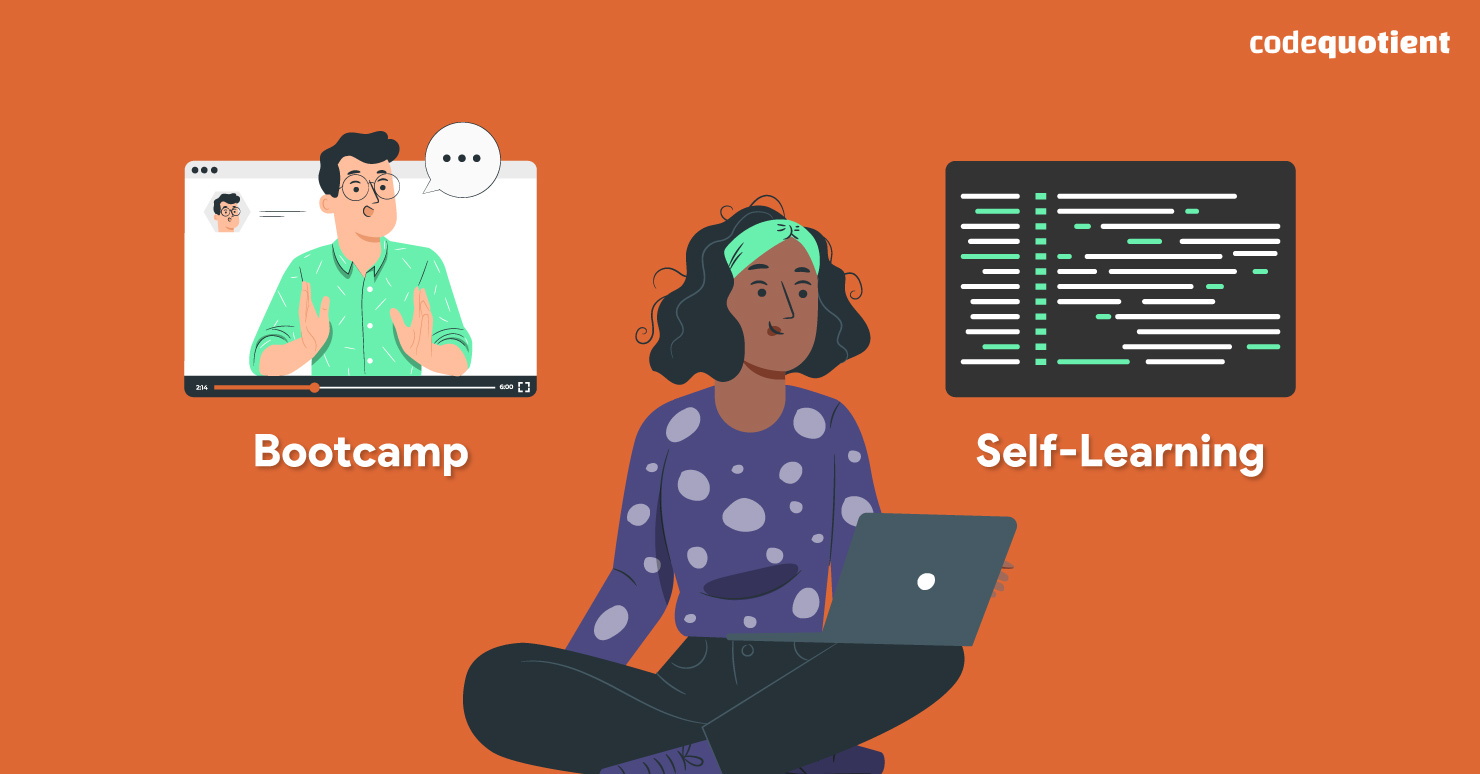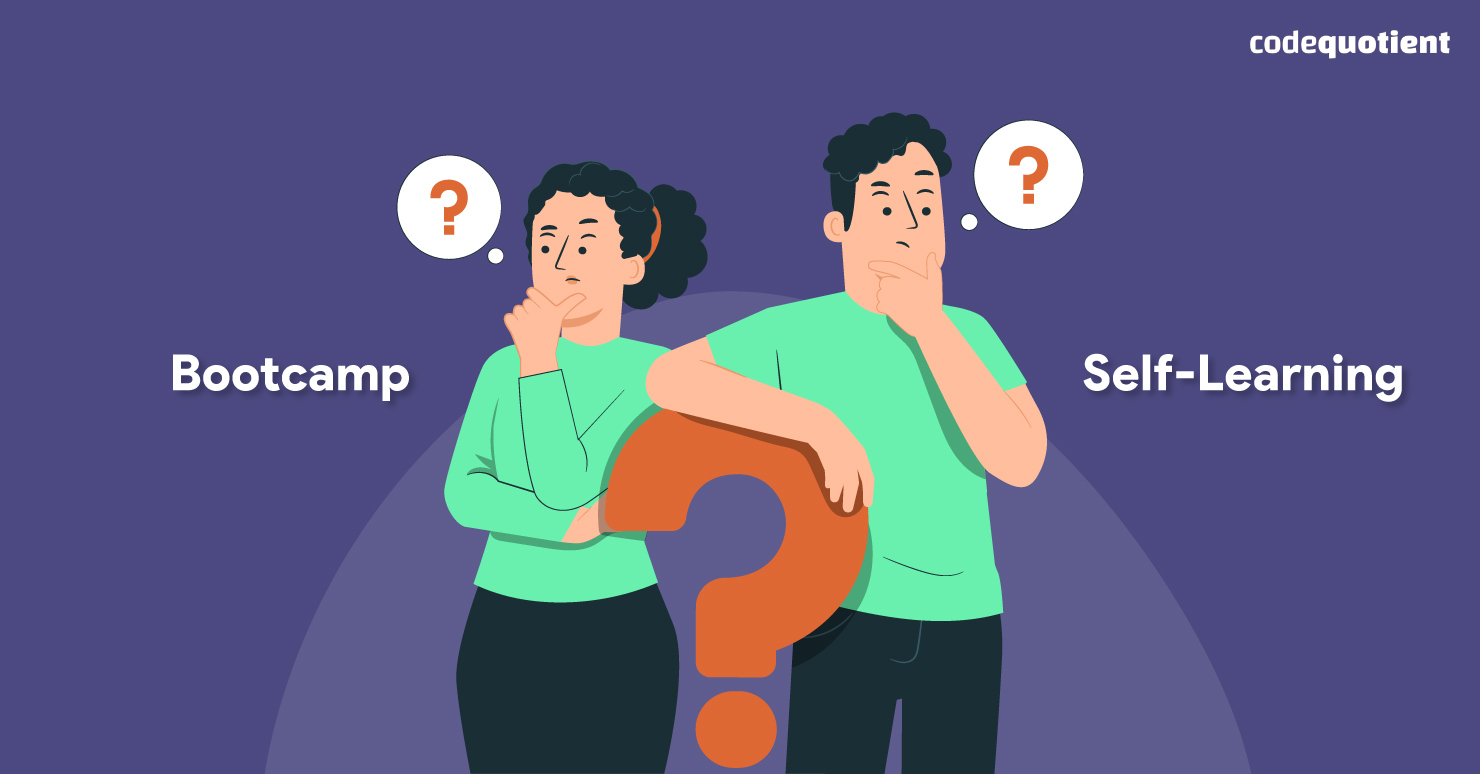It’s no exaggeration that today data is ruling the world. From buying a small gadget to strategic business operations to a country’s budget – you need data to make decisions.
But storing these data in databases is not enough. You need a way to communicate and retrieve the stored data. If you want to get into the field of Big Data, learning SQL through an SQL course is the first step.
SQL, or Structured Query Language, is a programming language to create, operate and maintain relational databases. When it comes to learning new programming languages, the first question that comes to a student’s mind is whether to learn through a bootcamp or self-learning.
In this article, we will discuss the pros and cons of both ways so that you can choose the right one.

SQL Course Through a Bootcamp
Bootcamp is an accelerated, intense learning program that teaches you job-ready, practical skills along with theoretical knowledge. It is usually conducted over a few months, either online or offline.
7 Key Advantages Of Choosing SQL Bootcamp
- Bootcamps have a structured learning path with a comprehensive curriculum that includes videos, articles, projects, live training sessions, etc.
- Working professionals and industry experts with years of experience teach you. They can clear all your queries (pun intended) ranging from fundamental theoretical concepts to real-world SQL implementation.
- Unlike full-time academic courses, bootcamps have flexible timings with recorded sessions and daily or weekly live classes. This is helpful for students and working professionals to learn part-time along with work/college.
- SQL bootcamps are very useful if you want to start working as soon as possible. Both students and working professionals wishing to upskill can acquire practical job-ready skills in months.
- You gain practical experience by working on live projects, which you can demonstrate to your future employers and have a better chance of landing a job.
- You will be part of a community of fellow learners, just like an academic classroom. You can make long-lasting connections, clear each other’s doubts, review codes, and work on projects as a team.
- Often bootcamps involve placements, so you have a job guarantee on course completion, saving your time and energy in job hunting for months.Also, you get a certificate adding weight to your resume and helps you land a good job.
Check out the other reasons to join a SQL course.
Few Disadvantages Of A Bootcamp
- Bootcamps involve fast-paced learning and require intrinsic motivation and discipline. You must be able to grasp the concepts quickly.
- Even if it is a beginner-level SQL course, it may require you to learn some concepts beforehand.
- Bootcamps usually teach multiple subjects and programming languages. It might not be a good option if you are a working professional looking to learn only SQL programming language.
Self-Learning SQL Course
If you want to learn SQL on your own, there are thousands of free resources like books, YouTube, blogs, free online courses, etc.
Even paid SQL courses on online education platforms like Coursera, Udemy, Codecademy, and others involve self-learning.
Pros Of Learning SQL On Your Own
- You can learn at your own pace. Not everyone enjoys learning in a fast-paced environment. Some are slow learners, while some prefer to give ample breaks between their study sessions to explore content other than course material.
- Are you a morning person or a night owl when it comes to studying? Everyone has their preferences, and you can set your own schedule accordingly. That way, upskilling doesn’t come in the way of your professional (or college) and personal commitments.
- If you have a basic understanding of DBMS (DataBase Management System) and languages like HTML and JavaScript, you can learn only SQL. In a bootcamp, you will have to relearn all of them.
- Although you may take up a paid SQL course, self-learning costs less in terms of money. But you will have to invest a lot of your time.
Cons Of Self-Learning
- Self-learning often involves learning from multiple resources meaning you don’t have a transparent, structured, step-by-step process for learning.
- You will need a lot of intrinsic motivation, discipline, and focus on studying continuously without getting discouraged.
- You don’t have the help of experienced professionals, mentors, and even your batchmates to clear your doubts.
- Since you don’t have a certification, hiring managers sometimes do not value self-taught skills.
So, SQL Bootcamp Or Self-Learning?
Learning SQL opens the doors to several opportunities. You can become a software developer, database developer, data analyst, data scientist, data engineer, etc.
Depending on your goals, time, financial constraints, and other factors, you can learn on your own or enrol in a SQL course Bootcamp.
If you want to learn not just SQL but other programming languages and skills required for a successful tech career, CodeQuotient’s SuperCoders Program, with its project-based learning, might be the right option.
Talk to us to learn more!




